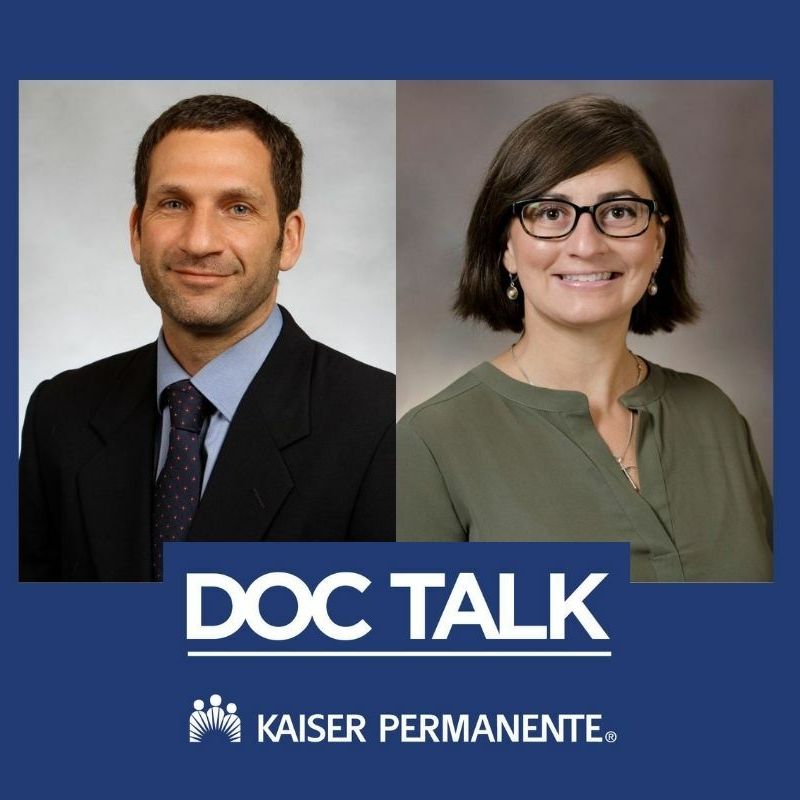Doc Talk: Your questions — answered

Lisa Denike, KP, MD, Chief of Pediatrics
Kaiser Permanente
As the pandemic passes its 2-year point, doctors at Kaiser Permanente are helping parents find ways they can support children struggling to adjust. Lisa Denike, MD, chief of pediatrics for Kaiser Permanente in Portland, Oregon, answers questions about what parents should be aware of and shares steps we can take to help support kids’ mental health and well-being.
Q: I notice a lot of new fears in my young kids. I’m certain that is the impact of COVID-19, but I’m wondering about the long-term effects that fearfulness can have on mental health.
A: It is very normal for kids of all ages to have fears and concerns. Having these, and working through them, is how kids grow and shape their abilities and coping skills and eventually develop resilience.
The pandemic has brought into view a very heightened sense of emergency for both kids and adults. The global scale of this pandemic, and its presence in so many ways in our daily lives, has made the fears much more invasive. And the ability to access so much information electronically has basically had each of us “bathing” in these fears continuously during the pandemic. We can build resilience by limiting our daily exposure to media and homing in on those things we do have control over.
Experiencing this pandemic has most certainly been traumatic for everyone. How that trauma is processed is truly the way we can move through and past it. Kids who have navigated the pandemic, and the accompanying fears, by talking about and processing them, focusing on things they are able to control, have learned skills they will use the rest of their lives.
Q: Do you think wearing masks has affected kids’ mental health?
A: Kids process their experiences through the lens of their parents and primary caregivers. What I have noticed from the kids I care for is that those whose parents understood the benefits of masking to protect their health and accepted them as a way to protect themselves, their families, and their loved ones did not seem to be affected by wearing a mask. The majority of kids I see have not had any negative impact on their mental health from wearing a mask.
Q: I notice that my introverted kids have had a much easier time during the pandemic than my extroverted kids. Any observations and thoughts?
A: By nature, those people who are extroverted generally process their emotions verbally and with others. Given the pandemic lockdowns and absence of time with their peers, it stands to reason that extroverts struggled with the isolation of the pandemic. In contrast, introverted people already process internally and often have smaller peer groups and, thus, may have been less affected by the social isolation of the pandemic. This is not to say that both groups did not have challenges due to the isolation of the last 2 years. Even introverts need some social time with their peers.
Q: Having different opinions on COVID-19 and mask wearing can be very isolating. How can our children navigate these types of issues?
A: Differences in opinion in our society are ever present. The pandemic highlighted these differences. Having children and teens exposed to differences of opinion is a great opportunity to have discussions with them about curiosity with regard to others and their opinions. Being open to hearing different perspectives about issues that affect all of us is a really valuable skill. Kids are quite capable of learning this at a very early age. We need to take this pandemic as an opportunity to model this behavior and teach our kids the importance of hearing the perspectives of others, evaluating the information we have ourselves, and making our own informed decisions.
Q: How do we encourage socialization but keep our kids safe?
A: As human beings, we are social creatures. The connections we have to each other are vital to our existence. Each family has its own risk tolerance and comfort level with how to make this happen. The safest way to allow children to socialize is outside in the fresh air. Allowing children to play at the park is a great way for them to get much-needed physical activity and have social time with their peers. If activities are indoors, consider having your children wear a mask. Washing hands is, and always has been, a great way for them to avoid being exposed to germs that can make them sick.
Q: Any advice on how to help teens feel safe and healthy during ongoing anxiety and concerns about getting sick?
A: The teenage years are a time for teens to explore their independent identity outside of the family unit. While teens may have some concerns about getting sick, by far the majority of anxieties are really around going back into the world in a social way.
It’s really important for us as parents and caregivers to encourage our teens to explore their independence. Small and consistent activities in this direction really can help teens overcome their anxiety about being back in social settings. Minimizing risks of getting sick by spending time with peers outside, or masking while inside, and being vaccinated and boosted are the best ways to help teens feel more confident about socializing again. A small portion of teens have truly crippling anxiety about becoming ill. If your teen is having such severe anxiety that they cannot leave the house, go to school, or socialize outside of the family unit, please talk with your doctor. Getting them help now is really important to help them overcome their anxieties and become more functional and independent.









